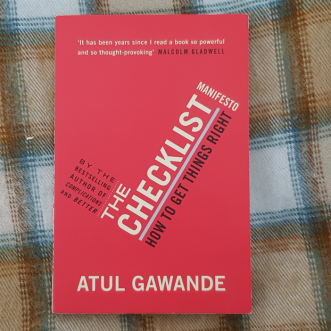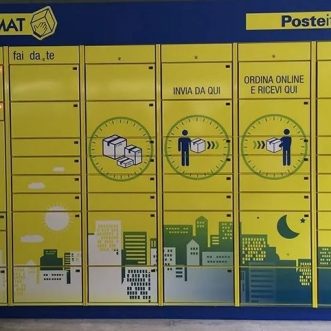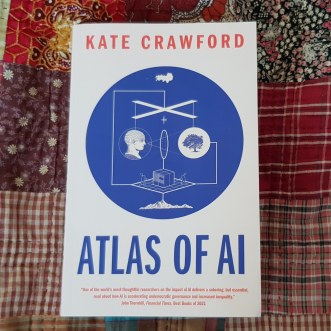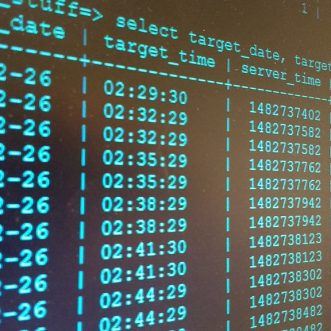
A manifesto for small business growth and productivity
If you were going to write “A manifesto for small business growth and productivity”, what would you include? I’d love … Read More “A manifesto for small business growth and productivity”

If you were going to write “A manifesto for small business growth and productivity”, what would you include? I’d love … Read More “A manifesto for small business growth and productivity”

John Simmons looked down at the room full of young women working away at their adding machines, each passing the … Read More “Automating drudgery”

‘Happy New Year!’ ‘Happy New Year to you too’ It’s early in the morning, on one of those quiet days … Read More “Non-work”

“There were boisterously spiced empanadas, tamely flavoured empanadas, tightly crimped and crisp empanadas and loosely folded, sloppy empanadas. The standardised recipe couldn’t overrule the uniqueness of each cook, their personality, and experiences, which they inevitably infused into their cooking.”*
This is why you should never be afraid to produce an OurScore for your customer experience. Like a musical score, it looks prescriptive, but each and every performance of it will be unique.
This is also why you should never automate more than the admin parts of it. Only humans can humanise an experience.

Christmas, 2014. I was listening to The Reith Lectures on Radio 4.
As usual, I hadn’t taken much notice of who was behind what I was listening to (I didn’t find out who played my favourite ever dance record until 30 years later). Then the speaker said something that galvanised me.
“Discipline makes Daring possible”.
After that I had to follow up on it.
The lecture was the second of a series on “The Future of Medicine”. The speaker was Dr Atul Gawande and the episode title was “The Century of the System”.
It “tells the story of how a little-known hospital in Austria managed to develop a complex yet highly effective system for dealing with victims of drowning.” – specifically in freezing water. A system that could be triggered by the receptionist.
The story came from Gawande’s book, “The Checklist Manifesto“. I tracked down a copy, bought it and devoured it in one sitting.
I thoroughly recommend it. Not just because it shows how something as simple as a checklist can save millions of lives, also because it shows how resistant ‘professionals’ are to any kind of systemisation.
Which fed nicely into my fascination with finding that fine balance between systems and humans that makes for consistently rich and evolving customer experiences, as well as consistently rich and evolving employee experiences.
If discipline is what makes daring possible, how little of it can you get away with?
How much daring can it enable?
I don’t know.
But I’m still enjoying finding out.

Why write down your Customer Experience Score? I can think of at least 6 reasons:
Discipline makes Daring possible.

Once you’ve assessed the potential consequences of what you’re seeing in feedback, and decided what to do about it, you can start acting to adapt your system.
Another relatively straightforward adaptation is to automate a part of your Customer Experience Score.
This could be an entire Activity, or it might be something that makes up a small part of lots of Activities.
You could for example automate your Enrol Prospect Activity, so that people can sign up online. Or some of your Show Up Activities – for example, placing ads or posting to social media or even commenting on other people’s posts. Or your entire Keep Promise Activity, if it is relatively simple.
Having your Customer Experience Score written down makes it easier to spot where automating an oft-repeated task that is part of many larger Activities would make sense.
For example, emails.
If your business involves lots of regular communication with clients – to request information or notify them of actions taken or remind them of actions they need to take, it makes sense to automate the sending of these emails. Especially if you want the emails received to be consistent in tone and language.
This is the kind of task that people hate doing, and so take shortcuts with, because it doesn’t feel essential to the rest of the process. It’s also the kind of task that happens at the beginning of a lot of important Activities, giving plenty of opportunity for silly copy and paste errors that will make your client feel a little less valued and a little more wary about how well you’re Keeping your Promise for them.
It’s also the kind of task that’s easy to automate well. You can create templates, written by a human to a human, then use software to schedule, personalise and send them to clients. Done well, this saves time and embarassment for you and your team, without feeling robotic for your clients.
Whichever part of your Score you consider automating, here are some questions to ask yourself:
And above all, this one:
Discipline makes Daring possible.

Tomorrow is April Fool’s day. A day when we expect to read, hear or see things that have been designed to take us in, to make us think that something false is true.
We know it’s coming on the 1st of April, so we turn on our ‘hoax’ antennae, we take things with a pinch of salt.
But a healthy scepticism is something we need all year round. More than ever now that AI can synthesise information from everything that’s out there in a convincing format, and an image like that above can be created digitally.
Healthy scepticism, not a blanket disbelief, just the willingness to question what we are told a little more deeply, to seek corroboration from trusted sources and our own experience, our own sense of what is likely.
Here’s a lovely tip I picked up from Elaine Morgan’s “The Descent of Woman“:
Whenever you are presented with some generalisation about what all or some human beings are like, change whatever collective noun is being used – ‘Households‘, ‘Teenagers‘, ‘Single mums‘, ‘Men‘ for a role or individual you are familiar with: ‘Our street‘, ‘My neighbour’s daughter‘, ‘My sister Julie‘, ‘My football team‘.
Then see how likely the generalisation feels.
And another lovely one from Kelly Diels:
“Who gets off the hook if this is true?“
Or the age-old one:
“Who benefits?“
Whatever makes you pause to think before swallowing is good.
Enjoy April Fool’s day. Even if you do get taken in. For what it’s worth, I’ve always thought it’s better to be the one who trusts, than the one who sets out to deceive.

An atlas helps you to see further than your immediate surroundings.
It puts you in context.
Actually, it puts you into multiple contexts, showing you how the small space you currently occupy is connected to others, by geography, geology, ecology and of course politics.
We tend to think of AI as something disembodied and impersonal. In reality, it’s very far from either.
This book puts AI into multiple contexts that get beyond and behind the current hypes.
So you can see further.
‘Atlas of AI’ by Kate Jackson
Well worth a read.

It’s June 2340. You’re about to retire.
You haven’t sold your business. That doesn’t worry you. No, not at all. Because over the last 30 years of running your business, every decision you’ve ever made; every view you’ve ever held; every comment you’ve ever uttered and every single idea you’ve ever had, has been recorded in a database, along with full details of the circumstances in which you made, held, uttered or had them.
The database will run your business for you. You’ll still be the Boss, you just won’t be there.
That’s probably just as well.
What if the circumstances never repeat?
What if your decisions, views and ideas could have been better?
What if you were just plain wrong?
A business is not an algorithm.
It’s an ecosystem of actions driven by values and emotions. For making and keeping promises. By humans to humans. More than the sum of its parts.
Far too precious to hold on to for the sake of it. And much more robust than you think it is.
Especially if you plan your disappearance beforehand.
HT to Bev Costoya for inspiring this.